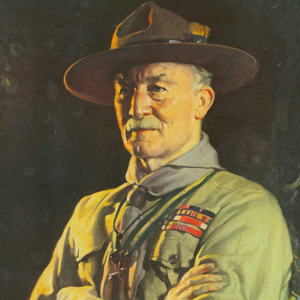 Preserve for the Future
Preserve for the Future
Scouting helps young men and women build character and strengthen citizenship and values. Developing youth who are physically strong, mentally awake, morally straight, has been the hallmark work of Scouting America since 1910. While Scouting’s positive mission remains the same, methods to engage youth have evolved. Program innovation draws from our rich history, exemplary leaders, engaging programs, healthy fun and timeless values to respond to the growing needs of youth today.
Scouting sets youth on a life-long journey to improve themselves and their communities. Uniquely, our program teaches youth powerful real-life skills. STEM education and workforce development programs grow future leaders for our nation in the trades and professions, business, education, government sector, and all walks of life. Youth develop positive attitudes and attributes that benefit them their entire lives. Today, boys and girls need all the positive support and reinforcement they can get in addition to their family and church influences. Our efforts to shape future leaders and careers will be even more important in coming years.
The W. D. Boyce Council has a long history of providing quality programming and the finest camping experiences for Scouts and their families. Achieving program objectives and maintaining our camp has become increasingly challenging each year. Our Board of Directors and senior management recognize that new financial resources must be secured to preserve excellence in programs and camp.
How to Preserve Our Proud Legacy in Central Illinois?
While W. D. Boyce Council is reasonably financially stable, its annual program costs of nearly $ 2.5 million must be secured through gifts from the friends and families of Scouting, foundation grants, special events, and United Ways. These traditional revenue sources are unable to keep up with the rising costs of delivering quality Scouting programming and managing our Ingersoll Scout Reservation. Realizing that Scouting’s future in Central Illinois depends on a sound financial foundation, our Board of Directors created the W. D. Boyce Council Endowment Fund as a vital long-term fiscal stability tool for Scouting in our Council.
What Is An Endowment
Most of us have heard of endowments, but what are they really? Endowments are donations, permanently restricted by a donor, whereby only the annual interest income earned can be used for a specific purpose. As the principal is not touched or reduced, perpetuity is ensured. The endowment generates interest revenue every year that can be used or reinvested. In plain language, an endowment is an income generator for its beneficiary not just one year or even one generation, but in perpetuity.
How does it work?
For example, John and Jane Smith donate $10,000 in cash, stock, or securities to our endowment fund. That $10,000 becomes the principal of the endowment. That principle is conservatively invested to earn interest income. If the current rate of interest is 10% per annum, then $1,000 of interest income can be earned and used to provide programming or maintain our camp. As the initial endowment gift of $10,000 is not reduced, that principle will continue to generate interest income for the W. D. Boyce Council Scouting Program year after year.
Discussion and a Cup of Coffee
I would welcome the opportunity to visit with you to discuss this exciting opportunity and to explore your financial wishes and intentions. Please feel free to invite friends, family or trusted advisers to join us. We can discuss the various opportunities to help Scouting in the W. D. Boyce Council and recommend, if possible, one of the many tax-saving, income-generating ideas. To discuss convenient meeting times, please contact Ben Blumenberg at 309 673-6136, ext 127, or by email: ben.blumenberg@scouting.org. Together we will make ensure Scouting remains strong and vibrant for youth in Central Illinois!
What Is Our Goal, How do We Manage & Who Can Contribute?
Recognitions
